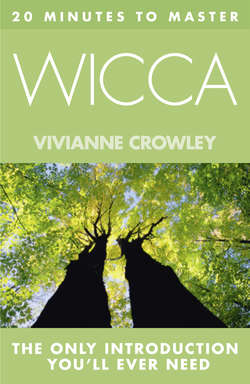Читать книгу 20 MINUTES TO MASTER … WICCA - Vivianne Crowley, Vivianne Crowley - Страница 26
CHAPTER 3 NATURE AND SEASONS
ОглавлениеRaw and cold is icy spring,
cold will arise in the wind;
the ducks of the watery pool have raised a cry,
passionately wailful is the harsh-shrieking crane
which the wolves hear in the wilderness at the early rise of morning;
birds awaken from meadows,
many are the wild creatures from which they flee
out of the wood,
out of the green grass.
A good season is summer for long journeys;
quiet is the tall fine wood,
which the whistle of the wind will not stir;
green is the plumage of the sheltering wood;
eddies swirl in the stream;
good is the warmth in the turf.
A good season for staying is autumn;
there is work then for everyone before the very short days.
Dappled fawns from amongst the hinds,
the red clumps of the bracken shelter them;
stags run from the knolls at the belling of the deer-herd.
Sweet acorns in the wide woods,
corn-stalks around the cornfields over the expanse of the brown earth.
There are thorn-bushes and prickly brambles by the midst of the ruined court;
the hard ground is covered with heavy fruit.
Hazel-nuts of good crop fall from the huge old trees on dykes.
In the black season of deep winter
a storm of waves is roused along the expanse of the world.
Sad are the birds of every meadow plain,
except the ravens that feed on crimson blood,
at the clamour of harsh winter;
rough, black, dark, smoky.
Dogs are vicious in cracking bones;
the iron pot is put on the fire after the dark black day.
Irish, eleventh century, attributed traditionally to Amergin1
Attuning ourselves to the seasonal cycle is one of the most important things about becoming a Witch. This may seem surprising. After all, our Witch images were all of cats, capes and cauldrons. Why do Witches celebrate seasonal festivals? Wicca is a Nature religion. The Divine is in-dwelling in Nature and Nature is its cloak and garment. By celebrating the seasonal festivals we reconnect with the rhythms of Nature and we reconnect with the Divine. This can help end the sense of alienation and anomie felt by many in modern industrial society. It takes us back to our natural origins.
Our attitudes to Nature have evolved rapidly over recent centuries. The animist ideas of indigenous peoples and traditional societies – that Nature is alive – clashed with Western capitalism’s scientific materialism. This declared that living creatures were like machines. There was no spiritual dimension to the universe. Nature was natural resources, something to be exploited, regardless of the consequences.
Mining, logging, deforestation, the lowering of the water table, all these short-term economic benefits were pursued at the expense of the long-term viability of our planet. Nature was seen as available for human exploitation; we were in control. We were wrong. The powers of the elements are not under our control. We cannot hold back the seas that erode our coastlines, the gales that destroy cities and forests, the raging forest fires of over-dry summers, or the earthquakes and volcanoes that threaten to engulf some of our land. Climatic change, global warming, environmental conferences, CFC gases; our newspapers are full of such phrases. Nature is like our mother. We can abuse her and she will tolerate us because we are her children; but there will come a point when she has had enough. The Great Mother gives birth to our species, but she also receives us into death.
Unless we reconnect with Nature and come back into harmonious relationship with the other species around us, humankind will be rejected in the laboratory of the universe. In Wicca, humankind is seen not as a superior form of creation but as a species amongst others. All creation is our kin. Kinship implies empathy both with the animal and with the plant kingdoms. Empathy implies mutual respect. Animal rights are important in Wicca and about half the Wiccan community are vegetarians. Ecology is another important issue. Many Witches belong to environmental groups and eco-magic to protect the planet is the main focus of some covens’ activity. In this, Wicca is not alone. All over the world, indigenous traditions and tribal peoples are working towards the same ends.
In many Pagan cultures, we find the myth of a Golden Age when human beings and Nature dwelled in harmony. The Roman poet Ovid wrote in his Metamorphoses of the Golden Age:
Earth was untroubled,
unharried by hoe or ploughshare,
and brought forth all we needed.
And we were happy;
gathering berries from the mountain sides –
cherries, black caps, and edible acorns.
Spring was forever,
with a west wind blowing softly across the wild flowers.
The unploughed Earth brought forth rich grain.
The unfarrowed field whitened with wheat.
There were rivers of milk and rivers of honey,
and golden nectar dripped from the deep-green oaks.2
This may have been a vision of the future rather than a memory of the past; the hope of how our ancestors would have liked things to be, rather than the reality. However, regardless of the literal truth of such myths, they express something deep within the human psyche – a desire for oneness and harmony with the world around us. By celebrating Nature’s cycle of change, we can attune ourselves once more to the natural world. We become part of the greater whole that is the universe itself.
